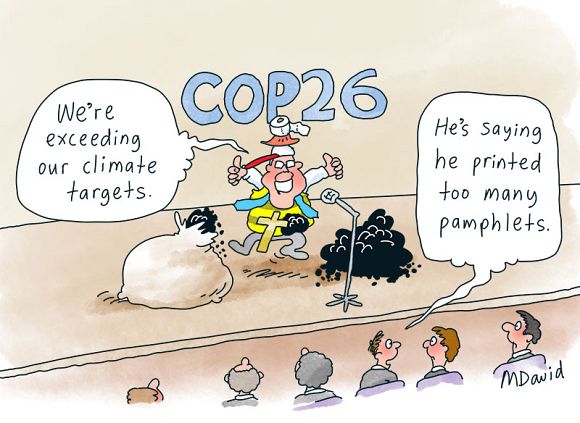Aside from the devastating loss of human life, the attack on Ukraine by Russian forces has resulted in a massive environmental catastrophe, writes Sue Arnold.
RUSSIA IS destroying Ukraine’s cities, villages, infrastructure, agriculture, populations including children, culture and the environment on which the economy depends. The environmental damage will take decades to repair, leaving the country in deep economic and ecological chaos with global impacts.
My Ukrainian friend, Olena, lives in Kyiv. Every few days she sends me updates, news reports and confirmation that she and her family are still alive, enduring hell on Earth as the Russians pour misery and death on Ukrainian people.
I’m keeping her emails. When this dreadful war ends, Olena will have a diary of the holocaust she and her family lived through.
Bad news comes every day. Always heartbreaking. One of the worst blows was the bombing and ensuing destruction of the Kakhovka Dam, the second-largest reservoir in Ukraine, creating an environmental catastrophe for both Ukraine and Europe.
The utter devastation has been described as ecocide.
A report from the Ukrainian Nature Conservation Group finds that ‘the vast majority of all living organisms that inhabited the Kahovka reservoir have already perished or will perish in coming days’.
Russian President Vladimir Putin’s ongoing attacks in the massively damaged region make it difficult for the extent of damage to be estimated, much less revealed.
Landmines have been swept into the deluge posing major risks.
The reservoir was home to around 43 different varieties of fish. Massive changes in habitat threaten bird species and ecosystems have collapsed. According to one report, over 11 different nature parks, reserves and protected areas are now at risk.
Experts say the extensive flooding of large areas of Ukraine’s agricultural land will cause food production problems with possible repercussions for global food supply chains. Sowing and harvesting are now extremely difficult.
A report indicates:
Land mines... have contaminated a swath of Ukraine roughly the size of Florida or Uruguay.
It has become the world’s most mined country.
The report estimates the de-mining of Ukraine over the next ten years will cost $37.4 billion, and 757 years for the complete demining providing 500 sapper teams were available.
One small farm field demined by a U.S. Army Special Forces engineer yielded 700 mines, with estimates that there were thousands more.
A recent report by GLOBSEC showed evidence that Russian forces mined the bodies of their dead comrades as well as ‘deliberately targeted farming areas and agricultural land for contamination in order to deny its use for future economic activity in Ukraine’.
Climate change effects have been indirect.
Reports say the war has caused widespread deforestation across the country:
‘Ninety per cent of Ukraine’s wind power and 50% of its solar energy capacity has been taken offline since the war began.’
Recently, a team of carbon accounting experts evaluated the climate impact of the first year of the war. Researchers look at planet heating pollution from fuel use in tanks, planes, construction of fortifications, production of weapons and fires.
Their report estimated a total of 120 million metric tons of pollution. But experts say the biggest climate impact will come from post-war reconstruction.
Lennard de Klerk, the report’s lead author and an expert in war-related emissions said:
“The human catastrophe and the damage that’s being done to the country is overwhelming. We want to show the world that the damage that Russia is doing with these acts of aggression is not only within Ukraine, but impacts the whole world through the additional emissions of greenhouse gases, which is everyone’s problem.”
John Kerry, President Biden’s climate envoy, says the war is worsening the effects of climate change causing distress in a wider circle including Africa and South Asia:
“Russia’s targeting of Ukraine’s energy system, starting in October, has been particularly damaging as oil depots and gas power plants have exploded, releasing carbon and methane into the air, Ukrainians have been forced to rely on dirtier fuels to keep warm.”
The outage of the Zaporizhzhia Nuclear Power Plant, which supplied 25% of electricity demand, will lead to more coal-fired power production.
Now Odessa is under siege as the Russians destroy the grain facilities and ports, with missile hits on a sacred cathedral and high numbers of residences.
Russia is actively using chemical weapons against Ukrainian forces in the Bakhmut region. The chemical lewisite has been used, according to the Ukrainian military. This is an agent causing blistering of the skin and mucous membranes on contact. It was banned in the Chemical Weapons Convention in 1993.
It is almost impossible to measure or comprehend the distress Ukrainians are enduring. The environmental damage is estimated to amount to 2 trillion Ukrainian hryvnia — in AUD, $79,831,128,060. The calculations are ongoing.
My friend Olena sums up the feelings of many Ukrainians:
We are all very tired and just burnt out, we get sick from constant stress, from threats, from information swings, fortune-telling, they will throw a nuclear bomb at us, whether the Russians will come to our city. We are worried about loved ones. And for those who are nearby and for those who are at the front. And just for strangers who are on the front line, within reach of Russian S-300, mortars or hail.
We cheer for those who remained in the occupied territories, we are afraid that they will end up in filtration camps, tortured, raped and simply humiliated.
And in this strange mixture of feelings, thoughts and emotions we live for 500 days. Or are we surviving?
Yes, no... Strange, but we LIVE. And “rockets of goodness”, as Russian war fans call rocket attacks on Ukraine, cannot kill us all.
Sue Arnold is an IA columnist and freelance investigative journalist. You can follow Sue on Twitter @koalacrisis.
Related Articles
- Dumplings cop blame for sins of the Russians
- From 'YouTubers' to war reporters: Citizen journalism and the Ukraine war
- Ukraine-Russia war: Too many unanswered (or unanswerable) questions
- China’s peace plan shot down by Western propaganda machine
- The case for diplomacy in Ukraine
 This work is licensed under a Creative Commons Attribution-NonCommercial-NoDerivs 3.0 Australia License
This work is licensed under a Creative Commons Attribution-NonCommercial-NoDerivs 3.0 Australia License
Support independent journalism Subscribe to IA.
















